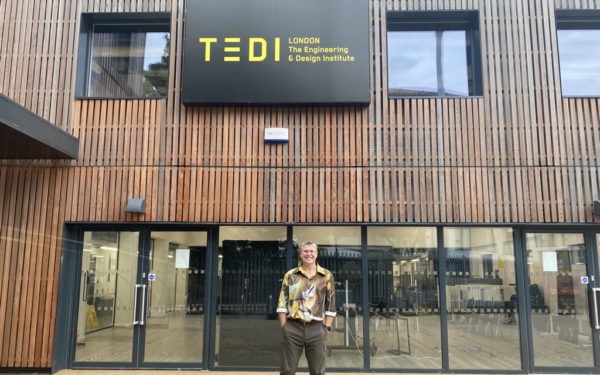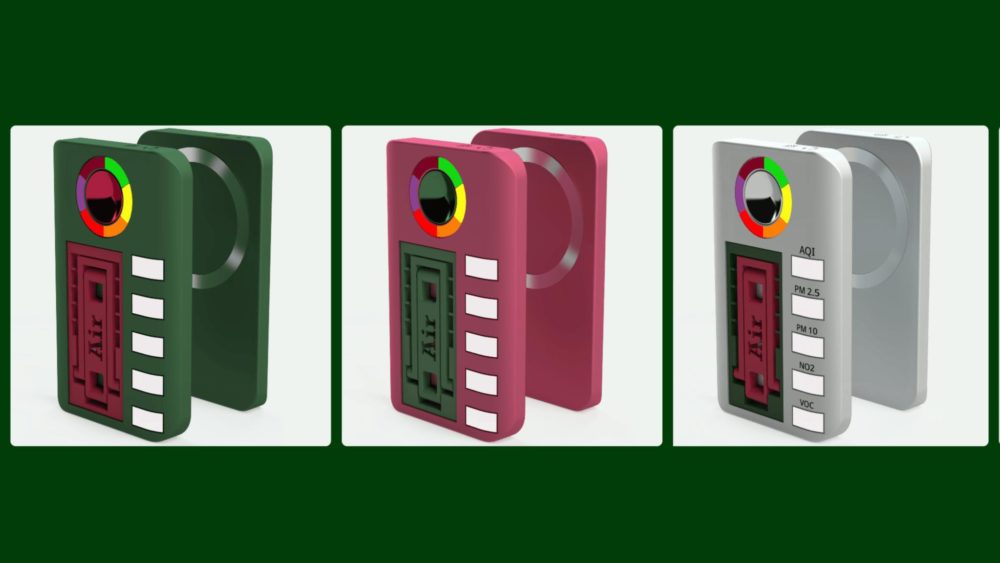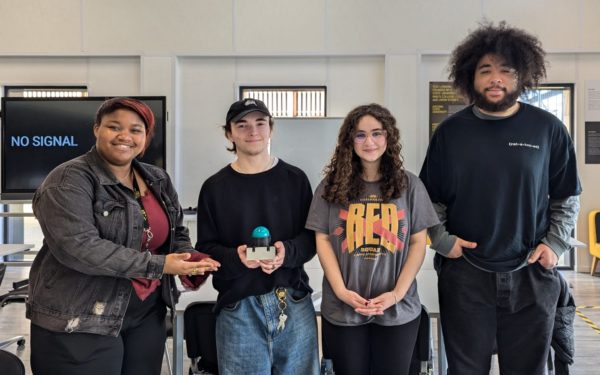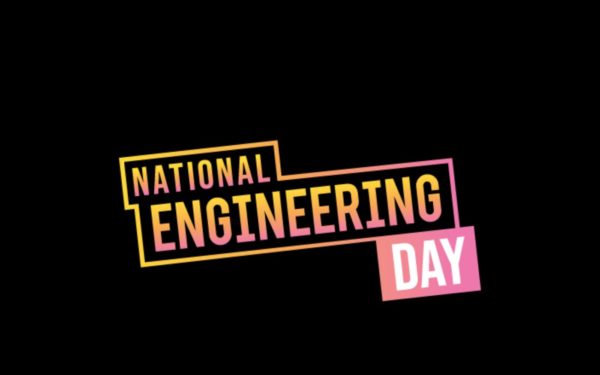
Living Labs: Exploring societal needs with companies and stakeholders

At TEDI-London, our Living Labs module is a testament to our hands-on approach to engineering education. This module challenges students to address real-world issues by developing innovative, inclusive and practical solutions. Working closely with local industry partners and community organisations, our students engage in systematic research, apply practical skills in workshops and consider ethical implications, sustainability and standards.
This year’s brief tasked them with creating solutions that address specific societal needs, such as enhancing urban planning accessibility and improving air quality awareness. We are excited to highlight four standout projects from this year’s cohort, each supported by a custom designed website.
These projects showcase the innovation and dedication of our students, blending advanced technology with an understanding of user needs. From an innovative air quality monitor to a tech-enabled sensory polytunnel, each project demonstrates the real-world impact of their work, narrated through their comprehensive online projects.
Air: Making the invisible, visible
Air quality is a crucial public health issue that often goes unnoticed. The Air project addresses this silent threat through a sophisticated air quality monitoring device paired with an insightful mobile app. Developed by students Zhe Xian, Zain, Oliver and Ishaaq and in collaboration with Sheffield Community Contact Tracers, the Air device is designed to track environmental pollutants in real time and provide users with healthier travel options. We are excited to share that with this project, our students secured funding for continuing the project supplied by Heeley Trust.
TEDI-London Sensory Room
Mindful of the stresses associated with academic life, students Yasmin, Emily, Lei and Lavinia worked in collaboration with British Land to design the TEDI Sensory Room—a space crafted to foster relaxation and mental clarity. This room is equipped with innovative features such as a breathing wall that displays soothing light patterns to guide relaxation techniques, a noise sensor that monitors ambient noise levels, and a living wall that adds a touch of nature, enhancing calmness and relaxation. This project illustrates how engineering can intersect with wellness to create spaces that support emotional and psychological health.
Bridging the gap: Inclusive urban planning
Bridging the Gap is a visionary project that serves a dual purpose: integrating the visually impaired into the urban planning process and enhancing their ability to influence the spaces they inhabit. Through the creation of tactile 3D models, the project offers a tangible way for visually impaired individuals to understand and contribute to the development discussions. This initiative, developed in partnership with MP Smarter Travel, is pioneering in its approach—employing blind-simulation glasses by Cambridge Engineering Design Centre to ensure the models are genuinely accessible and effective.
Sensory Polytunnel
The Sensory Polytunnel, developed in collaboration with Dockland Settlements and Bizzie Bodies, transforms a simple polytunnel into a tech-enabled, interactive learning environment focused on STEM education. This project supports a diverse range of learners, including those who are neurodivergent, by providing a space that is both adaptable and inclusive. The polytunnel is equipped with features that encourage exploration and learning, such as modular design elements and integrated digital tools, making STEM education accessible and engaging for all students.
These projects not only demonstrate the technical skills of our students but also their ability to empathise with and respond to the needs of diverse communities. The applications exemplify the role engineering plays in creating more inclusive, healthier and sustainable communities through thoughtful and innovative solutions.
Read more about the benefits of Living Labs.
More Industry partners articles


Show and Tell 2025: Global Design Engineering Students Meet MathWorks
